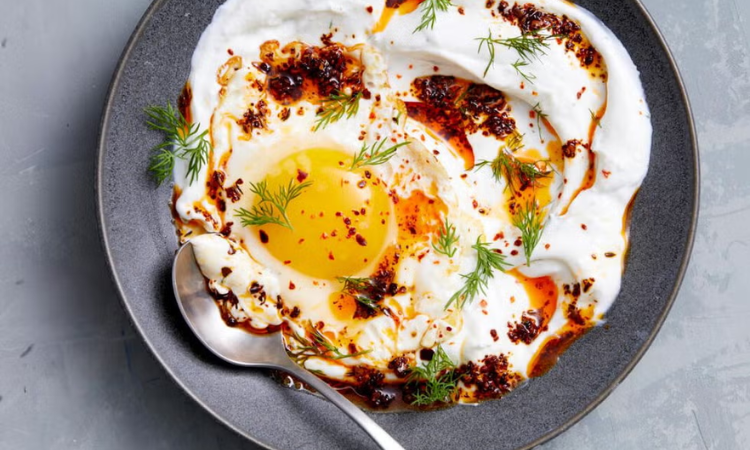A balanced 2,100-calorie meal plan supports weight maintenance, energy levels, and overall health for moderately active individuals. Whether your goal is to maintain your weight, fuel your active lifestyle, or improve your nutrition, a well-planned meal plan ensures you get essential nutrients without exceeding your calorie needs. This guide explains how to create a sustainable 2,100-calorie meal plan with practical tips, a sample menu, and strategies for success.
Step 1: Calculate Your Calorie Needs
Your daily calorie needs depend on factors like age, gender, height, weight, and activity level. A 2,100-calorie diet suits moderately active women or less active men aiming to maintain their weight. For comparison, weight loss typically requires 1,500–1,800 calories, while highly active individuals or men may need 2,400–3,000 calories.
Use an online calorie calculator for a personalized estimate. These tools consider your unique profile to suggest a daily calorie target. For example, a 35-year-old woman who exercises three times a week might find 2,100 calories ideal for maintaining her weight without feeling deprived.
Why it matters: Knowing your calorie needs helps you plan meals that fuel your body without excess calories that could lead to weight gain.
Step 2: Prioritize Nutrient-Dense Foods
To maximize nutrition within your 2,100-calorie budget, focus on whole, nutrient-dense foods. These provide vitamins, minerals, and fiber while keeping you full. Include:
- Fruits and vegetables: Aim for a variety of colors to get diverse nutrients.
- Whole grains: Choose oats, quinoa, or brown rice over refined grains.
- Lean proteins: Opt for chicken, fish, tofu, or legumes.
- Healthy fats: Include avocados, nuts, seeds, and olive oil.
- Low-fat dairy or alternatives: Select Greek yogurt or fortified plant-based milk.
Limit processed foods, sugary drinks, and high-fat snacks, which offer empty calories with little nutritional value. For instance, swapping soda for water or herbal tea saves calories for more satisfying foods.
Real-life example: Sarah, a busy teacher, switched from grabbing fast food to packing a lunch with grilled chicken, quinoa, and veggies. She felt more energized and saved money, proving small changes make a big difference.
Step 3: Structure Balanced Meals and Snacks
A balanced meal plan distributes calories across breakfast, lunch, dinner, and snacks to prevent hunger and overeating. Use the plate method for meals:
- Half your plate: Non-starchy vegetables like spinach, broccoli, or peppers.
- One-quarter: Lean protein like turkey or lentils.
- One-quarter: Whole grains like brown rice or whole-grain bread.
Add fruits, dairy, or healthy fats as your calorie budget allows. Plan two snacks daily to maintain energy. For example, a mid-morning snack of an apple with almond butter keeps you satisfied until lunch.
Why it matters: Balanced meals stabilize blood sugar, reduce cravings, and support consistent energy levels throughout the day.
Sample 2,100-Calorie Meal Plan
Below is a sample one-day meal plan designed for 2,100 calories, offering a mix of nutrients and flavors:
Breakfast (500 calories)
- 1 cup cooked oatmeal with 1 sliced apple, 1 Tbsp chopped almonds, and 1 Tbsp maple syrup
- 1 hard-boiled egg
- 1 cup green tea
Morning Snack (200 calories)
- 1 medium banana with 2 Tbsp peanut butter
Lunch (550 calories)
- Tuna salad sandwich (3 oz tuna, 1 Tbsp light mayo, mustard, celery, onions on 2 slices whole-grain bread)
- Side salad (romaine, cherry tomatoes, cucumbers, 1 Tbsp olive oil-lemon dressing)
- 1 cup low-sodium vegetable soup
- 1 medium orange
Afternoon Snack (200 calories)
- 1 oz low-fat mozzarella cheese stick
- 10 whole-grain crackers
- 1 plum
Dinner (550 calories)
- 4 oz grilled salmon
- 1 cup roasted Brussels sprouts with 1 tsp olive oil
- 1 small baked sweet potato
- Side salad (mixed greens, carrots, bell peppers, 1 Tbsp balsamic vinaigrette)
Evening Snack (100 calories)
- 1 cup low-fat plain Greek yogurt with ¼ cup mixed berries
Note: Calorie counts are approximate and may vary based on portion sizes or brands. Adjust portions to fit your preferences while staying within the 2,100-calorie target.
Step 4: Tips for Long-Term Success
To make your 2,100-calorie meal plan sustainable, follow these practical strategies:
- Stay hydrated: Drink water throughout the day. Aim for 8–10 cups, adjusting for activity or climate.
- Flavor without calories: Use herbs, spices, garlic, or lemon juice to enhance meals without adding salt, sugar, or fat.
- Measure portions: Use measuring cups or a food scale to ensure accuracy, especially for calorie-dense foods like nuts or oils.
- Prep ahead: Batch-cook grains or chop veggies on weekends to save time.
- Allow treats: Enjoy a small dessert or favorite snack occasionally to avoid feeling restricted.
- Keep variety: Stock a range of produce and proteins to prevent boredom.
- Learn simple recipes: Try quick dishes like stir-fries or smoothies for busy days.
Real-life example: John, a father of two, found meal prepping on Sundays helped him stick to his 2,100-calorie plan. He prepared mason jar salads for lunch, saving time and ensuring balanced meals during his hectic workweek.
Why a 2,100-Calorie Meal Plan Works
This meal plan balances macronutrients (carbs, protein, fat) and micronutrients (vitamins, minerals) to support energy, immunity, and overall health. It’s flexible, allowing you to swap foods based on preferences or dietary needs, like choosing tofu for salmon if you’re vegetarian. By focusing on whole foods and portion control, you avoid the pitfalls of restrictive diets, making it easier to maintain long-term.
Why it matters: A sustainable meal plan isn’t just about calories—it’s about nourishing your body and enjoying food. This approach helps you feel your best while reaching your health goals.




